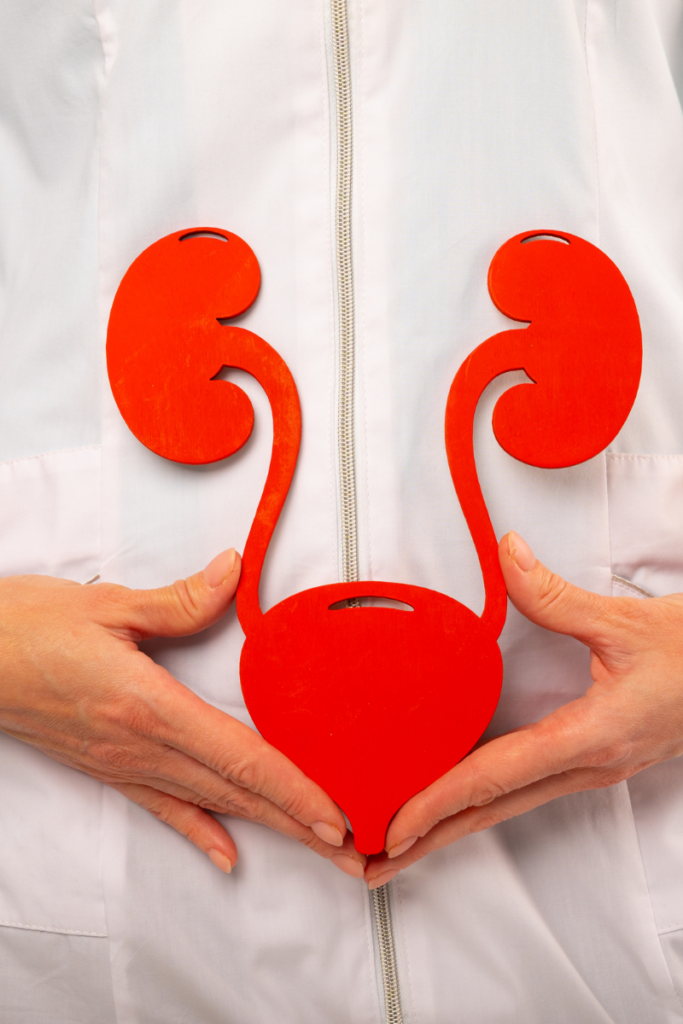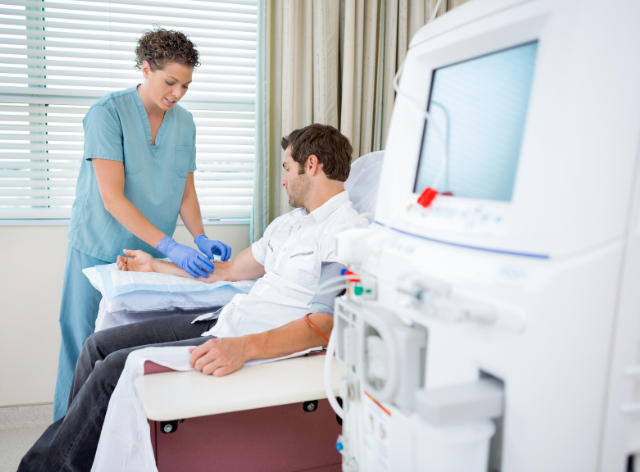

Abdominal aortic aneurysm (AAA) therapy has advanced significantly with the use of EVAR (endovascular aneurysm repair). In EVAR, the delivery sheath is inserted into the lumen of an access channel, frequently the common femoral artery, and folded and compressed transplant components are placed within. When the endograft is placed, it swells and contacts the iliac arteries distally and the aorta wall proximally to isolate the aortic aneurysm sac from aortic blood flow and pressure.
Due to the fact that EVAR does not necessitate aortic clamping or operational aorta exposure, perioperative mortality is significantly lower with EVAR than with open AAA repair.
A potentially dangerous weakening of the aorta’s wall is called an abdominal aortic aneurysm. The largest artery in the human body, the aorta carries oxygen-rich blood from the heart to the legs, pelvis, and other parts of the body. The artery becomes thin and fragile as the aorta weakens and bulges like a balloon.
The medical word for aorta enlargement is an aneurysm. There is a possibility of rupture due to the abdominal aorta’s growing size. Serious internal bleeding might follow, which could lead to shock and death. A cardiac procedure fixes the weakened section of the abdominal aorta.
Most of the major general surgery and cardiology facilities provide AAA repair. A handful of multi-specialty institutions also provide reasonably priced abdominal and thoracic aortic aneurysm surgery in India.
There are several disorders that might harm the walls of your aorta and lead to aortic aneurysms, such as


Endovascular grafting, a surgery with little to no incision, is a minimally invasive method of treating aortic aneurysms. Your doctor could advise endovascular aneurysm repair as opposed to open aneurysm repair, which requires opening your chest and abdomen during surgery (EVAR). Your clinician may use the terms thoracic endovascular aneurysm repair (TEVAR) or fenestrated endovascular aneurysm repair (FEVAR) in addition to EVAR, depending on the kind of repair being treated.
In order to strengthen the weak spots inside your aorta, endovascular surgery employs small, lengthy tubes known as catheters. You could be a candidate for endovascular stent grafting if your aneurysm is 5 cm or greater, hasn’t ruptured, and isn’t more than that.
The majority of the time, an abdominal aortic aneurysm goes unnoticed. Because of this, some abdominal aortic aneurysms are found during a CT scan or ultrasound that is being done for another reason.
Other people with an abdominal aortic aneurysm may also suffer the following signs and symptoms:

Endovascular aneurysm repair cost in India starts at USD 5000.

How is the procedure carried out?
The entire procedure will last between two and three hours. You’ll spend one to two days in the hospital. You won’t feel completely well for around a month.
A few days before the procedure, pre-operative tests could be necessary to make sure you are a good candidate for the surgery. Before the procedure, you might need to stop using some medications. Your medical team will provide you with specific recommendations to help you get ready for the procedure.


Your surgeon will provide you with specific post-procedure instructions to follow until your incision is completely healed.
After the procedure, you can be bound by the following limitations:
The results of the operation will be discussed with you by your doctor. The success rate of endovascular grafting is high. Although there will be follow-up sessions for the stent graft, most patients resume their regular lifestyles following the procedure. In general, people with aneurysms should have healthy lives, which include eating a balanced diet and exercising frequently. Since aneurysms increase your risk of atherosclerosis and heart disease, you should get a thorough assessment in addition to aneurysm surgery to determine how likely you are to develop these other conditions.


Please get in touch with your healthcare provider right immediately if you have any concerns:
Your follow-up appointments should all be kept. After the operation, you might need ongoing imaging tests to keep an eye on your aneurysm. This will guarantee the stent’s stability. Over time, the aortic bulge ought eventually to start to lessen.
We host reputable resources for patients looking for doctors, hospitals, and specialty therapies in India. For you, we’ll identify the best medical options. Our team will provide you with a list of licensed, recognized, and trusted physicians and medical facilities in relation to your medical needs. Additionally, we provide a cost-effective treatment plan. Aside from that, we help patients with a wide range of other things, like getting travel permissions and medical visas.
The main issues are:
Patients should contact their doctor right away if they have a seizure, a severe headache, increasing neurological issues, a fever, chills, ankle swelling, bleeding, or bruises.
There are several reasons why people have headaches. Although many men and women endure headaches throughout their lives, their distinct patterns might serve as red flags for more significant underlying problems. If there is a problem, a patient should see a doctor.
Brain tumors are often classified as malignant or benign. Based on where they are located in the brain, various tumor types might produce distinctive symptoms.
Malignant tumors are frequently thought to be more harmful and can develop more quickly and severely. Meanwhile, since benign tumors grow slowly, they are less likely to come back following treatments.
Following treatment, it is frequently advised to schedule routine follow-up sessions to check for symptoms because benign brain tumors can occasionally recur. After four to six months, patients are ready to resume their normal activities.
Indian Health Adviser (IHA) is a healthcare facilitator seeking to make health and wellness easier for people of international residents, their families, and their friends.
Designed by Acmeinfolabs